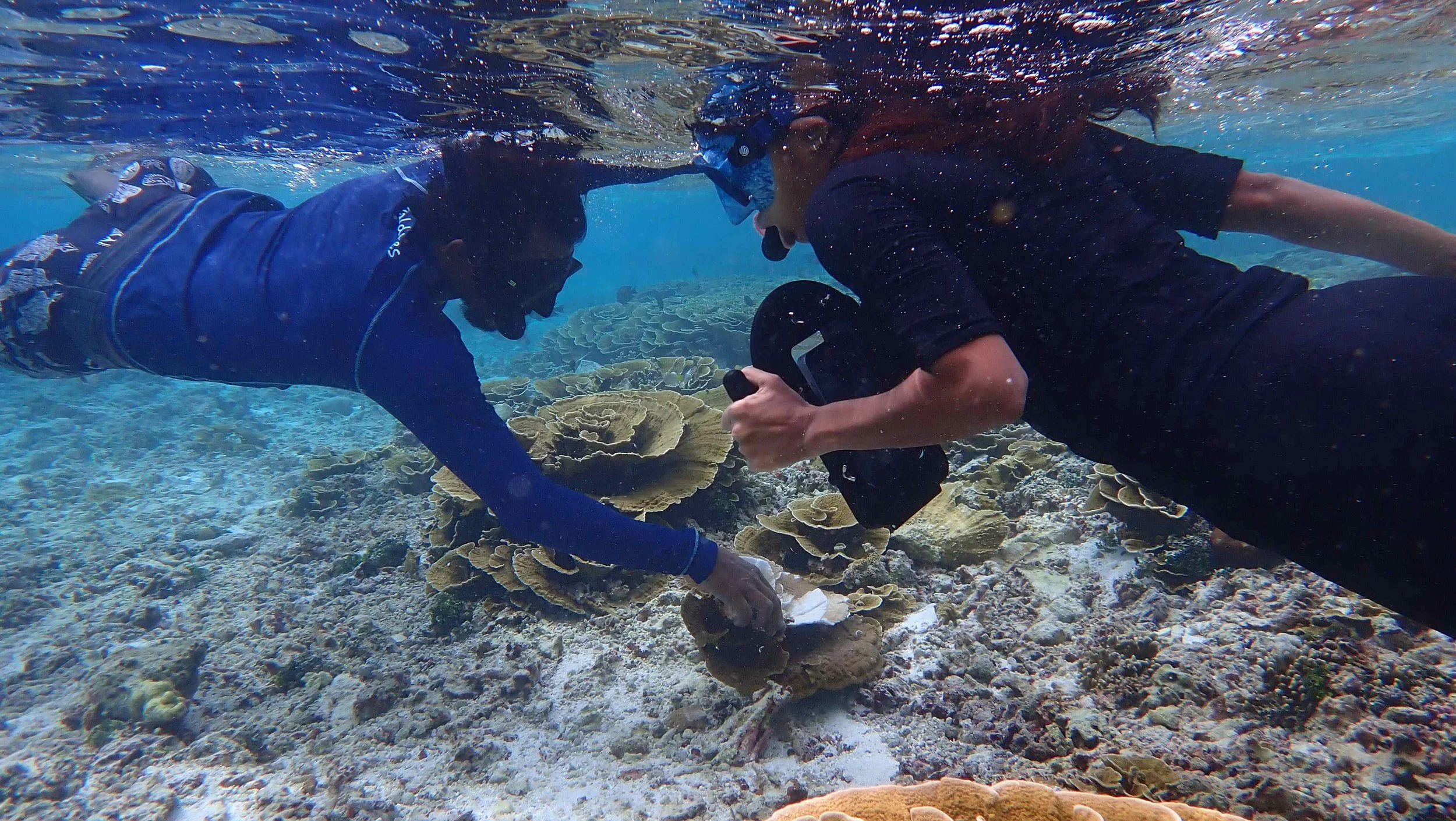Low-lying coral atolls in the Maldives are under significant threat from rising sea levels and warming oceans, aggravated by destructive development practices. As a result, protective reefs have deteriorated, leaving local communities vulnerable to erosion and flooding. The Maldives Coral Institute (MCI) has launched a project aimed at restoring the K. Himmafushi Reef to address these post-degradation issues.
This project has been made possible by the kind support of Der Touristik. The project is also supported by Mars Global and Sheba Hope Grows, and is carried out in partnership with Himmafushi NGO Minivanfaru, Himmafushi Council and community, and Save the Beach Maldives.
Methodology
MCI employs the Mars Accelerated Reef Restoration System (MARRS), a community-based method that rapidly rebuilds coral reefs. Reef Stars, low-profile structures coated with sand, anchor to the seabed to create a stable foundation for new coral growth. This approach has been highly successful in the past with significant increases in coral cover and fish abundance.
Objectives
The project follows a two-stage approach. The first phase includes local team training, establishing a coral "nursery" area, and installing 100 Reef Stars. The second phase expands the nursery, enhances the team's skills, and restores a larger portion of the reef.
Phases
Phase 1 (1 year): Installing 100 Reef Stars using locally collected coral fragments. A team from Himmafushi maintains a nursery area.
Phase 2 (2-3 years+): Expanding the nursery, enhancing the team's skills, and restoring a larger area with resilient coral species.
Community Engagement
MCI collaborates with Himmafushi Island Council and local NGO Minivanfaru. The island community is briefed, and students are engaged through education sessions. A local team of up to 10 people, including women and youth, is trained during the project. monitoring and maintenance, . Minivanfaru carries out monitoring and maintenance, with the support of MCI.
MCI's Reef Restoration Experience
This project builds on MCI's ongoing collaboration with Mars Global using the Mars Assisted Restoration System. The successful pilot project in Baa Atoll Fulhadhoo has shown substantial coral growth and community involvement.
Environmental Impacts and Mitigation
The project is expected to increase live coral coverage, which will have positive effects against erosion and protect the island. It will also enhance the reef's aesthetics, coral cover, biodiversity, and local ocean literacy. Mitigation measures include regular maintenance, avoiding sea bed disturbance, and proper waste disposal.
Anticipated Outcomes
The project initially installed a 100 sqm artificial reef with approximately 1500 coral fragments in phase 1, completed in 2023. This will also serve as a nursery for phase 2 expansion. This added 3-10,000 corals to the degraded reef, improving its resilience and ecological function. The project also addresses erosion issues and empowers the local community with knowledge and stewardship.
The Restoration of K. Himmafushi Reef aims to restore a vital coral reef in the face of climate change and destructive practices. By utilizing the innovative MARRS system and engaging the local community, the project not only rebuilds the reef but also creates a sense of ownership and awareness about the importance of healthy coral ecosystems, ultimately contributing to the long-term resilience of the island and its inhabitants.







